In case you missed it see what’s in this section
Combe Grove Hotel, Spa & Leisure Club
Brassknocker Hill , Monkton Combe, Bath, Somerset , BA2 7HS
Email 01225 834644Housed in the stunning former manor house, offering lavish bedrooms and a luxurious country club, stands Combe Grove. This is certainly one of my favourite places to stay in Bath; The surrounding views are stunning, the staff are fantastic, the food is sublime and the bar is stocked to the rafters with all the ingredients to make any number of fantastic cocktails. And that’s what brings us to Combe Grove for this visit!
As we stepped in to the impressive house, we were shown through to the bar by the amiable reception staff. We were a few minutes early for our workshop so were invited to take a seat and relax before being shown through to the Billiard Room where our workshop would take place. We were shortly taken through and shown to our seats.
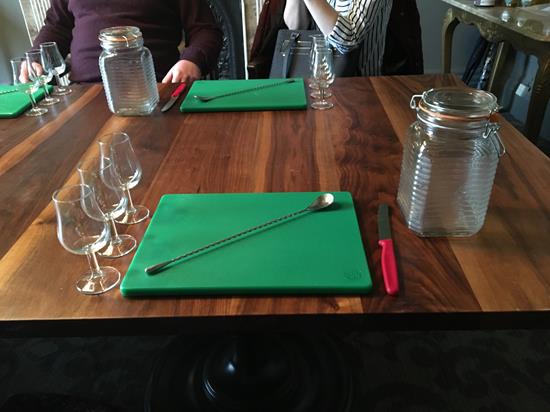
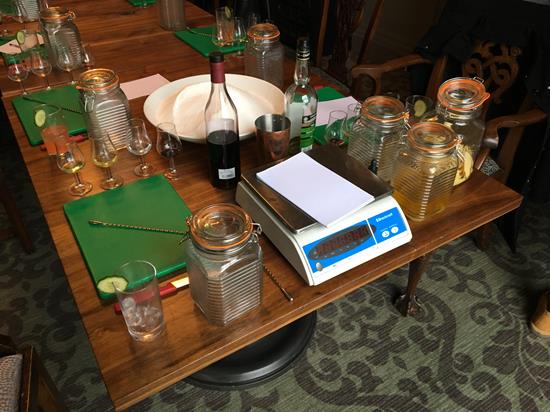
We were met with a grand table, individually set with three tasting glasses, chopping board, Victorinox kitchen knife, a bar spoon and an ornate mason jar. There were also digital scales and a huge bowl of fine sugar at one end of the table. I could tell that this workshop wouldn’t be good news for anyone on a diet! The high-ceilinged room, which we shared with 9 people in total, was filled with almost every fruit, herb and spice you could think of, which would come in to play a little later.
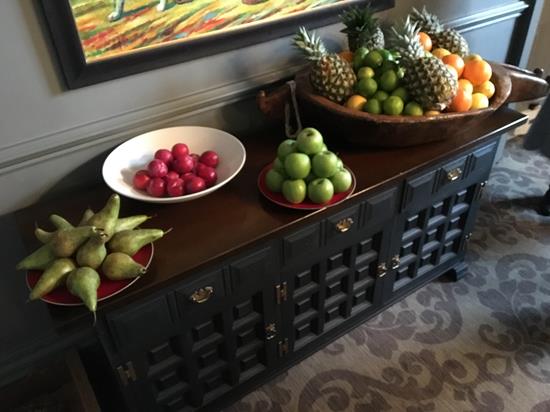
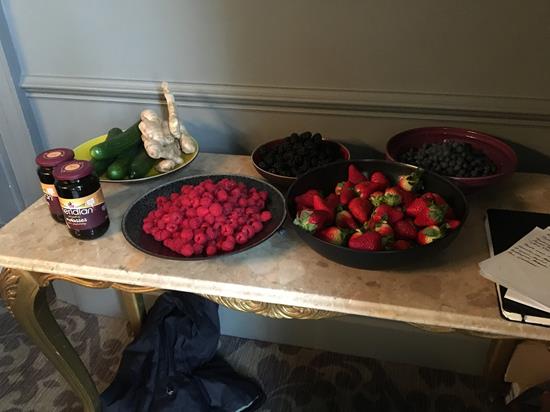
We were welcomed by our expert teacher for the afternoon, Shane. He is Combe Grove’s Head Barman and is obviously supremely knowledgeable and passionate about creating different taste combinations, and the history and production of liqueurs. As the workshop began, we listened keenly to what Shane had to say.
Shane started with a brief history of liqueurs, starting in ancient Greece and Egypt, through the monasteries of 16th century France, through to the high society of Italy, liqueurs were started by the ancient civilisations and finessed by monks in the search of ‘the elixir or life’, trying to extract the medicinal properties of herbs, fruits and flower petals using alcohol. The word itself comes from the Latin word Liquor, meaning: “to become liquid, melt away.”
After a brief tour though the history of liqueurs and having a taste of one of the oldest examples still in production today (Chartreus, first made in 1603) we witnessed as our host made some limoncello before our very eyes. It turns out there are a few ways to make a liqueur; the cheap and fast way is a technique called ‘cold compounding’. Shane demonstrated for us: He took a 70cl bottle of vodka, mixed in some fine, water soluble sugar and three pipettes full of a concentrated lemon essence, like the vanilla essence you’d use in baking. He proceeded to mix the whole thing together using a long bar spoon until it had all blended in to a simple limoncello.
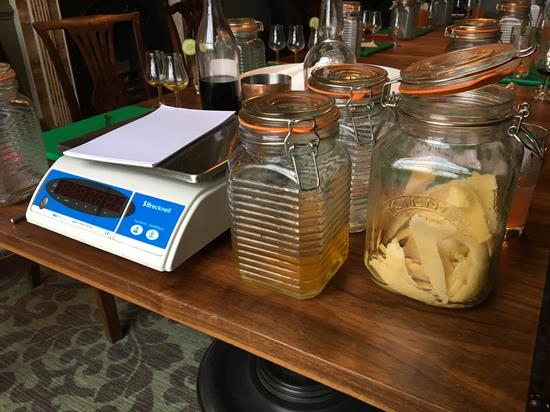
We were afforded a taste of the liqueur, which certainly had a kick! I was shocked at just how simple that seemed, and was later told that that’s how the cheaper end of the market produce their products. We, however, were going to be using a method called ‘maceration’. Shane pulled out a mason jar that was full of lemon peel swimming around in golden, honey-coloured liquid. The lemons in this jar has been steeping in cold vodka for over a month and the alcohol had stripped all the goodness out of the fruit, turning the colour of the spirit itself in to the misty yellow colour that a cold compounded liqueur would have to replicate through artificial colourings. We tasted this ‘proper’ limoncello and you could absolutely see the difference. The taste was more impactful and the texture of the liqueur itself was more silky, having picked up all the natural oils of the sharp lemons.
We were all convinced that maceration was the way to go to create an authentic liqueur, it takes a little more time, but you end up with a far better product. This is where we got our creative juices flowing. The fruit that had been beautifully presented around the room would now serve as the basis of our new liqueurs. Choosing from either vodka or gin as our base, the huge variety of ingredients at our disposal made this a pretty difficult decision as we were so spoilt for choice, we were only limited by our imagination!
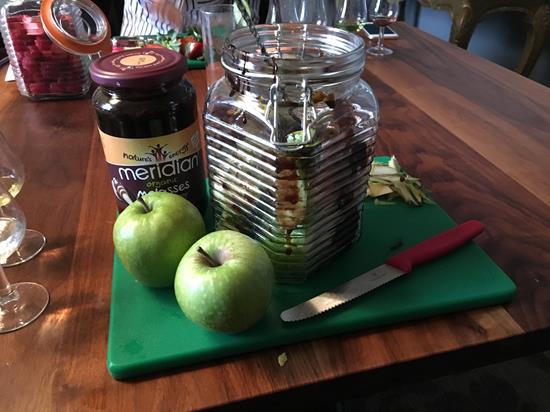
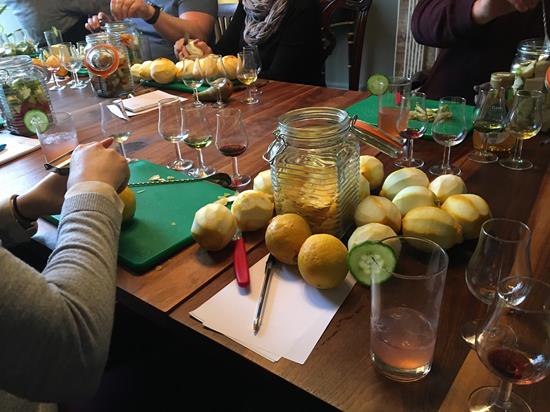
I opted to blend apples with the vodka and sweeten it with molasses – a tar-like treacle – and try to replicate the sweet flavour of candied apples. My wife decided on a lemon, honey and cinnamon liqueur, saying that she could try it to get over a cold! (Sounds like a plan to me!) Other members of the group asked Shane for hints and tips and he was excitedly suggesting twists and the use of other ingredients to compliment the flavours. He clearly knew a lot about how to pair the fruits, spices and botanicals, which gave us complete faith in his instruction and all secretly wanted to impress him.
After a lot of peeling of lemons (using twenty in total) and some chopping, measuring, and stirring under the expert guidance of Shane, we had the basis of our homemade macerated liqueurs, steeping away in our jars to take home. All we have to do is wait at least a month, then strain off the liqueur and add sugar to taste.
If you have even the remotest interest in the process of creating liqueurs, which is equal parts alchemy, art and magic, then I’d definitely suggest going along to the next available workshop. You won’t be disappointed!
Brassknocker Hill , Monkton Combe, Bath, Somerset , BA2 7HS
Email 01225 834644In case you missed it see what’s in this section
Listings